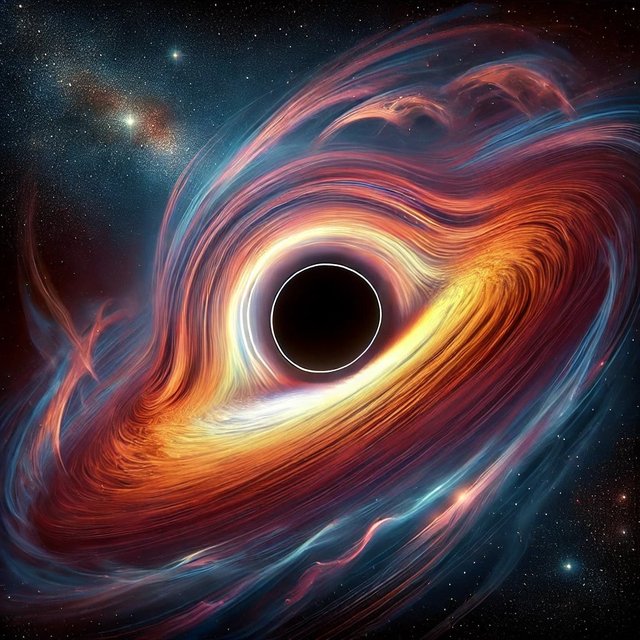
What Are Black Holes?
Black holes are regions in space where gravity is so strong that nothing, not even light, can escape from them. This intense gravity pulls everything around it inward, creating a point called a "singularity," where all matter is crushed into an infinitely small space. The area around a black hole where things can no longer escape is called the "event horizon."
How Do Black Holes Form?
Most black holes form when a massive star runs out of fuel and collapses under its own gravity. This process creates a "stellar black hole." There are also supermassive black holes, which are found at the center of galaxies, including our own Milky Way. These black holes are millions or billions of times heavier than the sun. Scientists are still studying how these enormous black holes form, but one theory is that they grew over billions of years by consuming stars and gas.
Types of Black Holes
There are three main types of black holes, each with unique characteristics:
- Stellar Black Holes: Formed by the collapse of massive stars, they have masses up to 20 times that of the sun.
- Intermediate Black Holes: Rare and larger than stellar black holes, with hundreds to thousands of times the mass of the sun.
- Supermassive Black Holes: Located at galaxy centers, they can be millions or even billions of times heavier than the sun.
Each type helps scientists understand the different processes that occur in space.
Why Are Black Holes Important?
Black holes play a crucial role in the universe. They shape galaxies by pulling in gas, stars, and other matter. Their intense gravity can even bend light, helping scientists study the behavior of light and gravity in extreme conditions. Black holes also give clues about how galaxies and other cosmic structures formed over billions of years.
How Do Scientists Study Black Holes?
Studying black holes is challenging because they can’t be seen directly. However, scientists use special techniques to detect black holes:
- Observing Stars and Gas Nearby: Black holes can influence nearby stars and gas clouds, causing them to move differently.
- X-rays: Black holes often emit X-rays as they pull in gas and matter, which can be detected by telescopes.
- Gravitational Waves: When two black holes merge, they create ripples in space-time called gravitational waves. Special detectors on Earth can pick up these waves.
Key Discoveries About Black Holes
Over the years, scientists have made some remarkable discoveries about black holes:
- Event Horizon Telescope (2019): Captured the first-ever image of a black hole in the galaxy M87.
- Gravitational Wave Detection (2015): Detected gravitational waves from merging black holes, proving a major prediction of Einstein’s theory of relativity.
- Black Hole in the Milky Way: Discovered Sagittarius A*, the supermassive black hole at the center of our galaxy.
The Mystery of the Singularity
One of the biggest mysteries about black holes is the singularity. Here, the laws of physics as we know them break down. Scientists don’t yet understand what happens inside a singularity, but they continue to study it, hoping to unlock new insights into space, time, and gravity.
Quick Facts About Black Holes
- Black holes are invisible but can be detected through their effects on nearby objects.
- There are billions of black holes in the universe.
- Time slows down near a black hole because of its intense gravity.
Conclusion
Black holes are some of the most powerful and mysterious objects in the universe. They challenge our understanding of gravity, space, and time. As scientists continue to study black holes, they hope to uncover more secrets about these incredible cosmic phenomena.
Upvoted! Thank you for supporting witness @jswit.
Downvoting a post can decrease pending rewards and make it less visible. Common reasons:
Submit